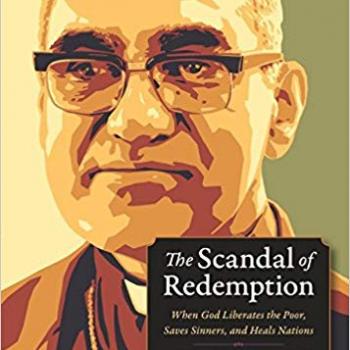On Friday, a child died. She was mine. She was yours. She had a long brown ponytail and large brown eyes. She had just turned 7, the same age as the innocent girl sleeping in my upstairs bedroom. Her name was Jakelin. She was created from the clay of a Guatemalan landscape and died in an American jail, her desperate and helpless father standing by. Crossing nations and continents for the promise of a life free from violence, I can’t help but think of a young Jesus, cradled against his mother’s flesh, fleeing violence for the promise of safety in Egypt. Unlike Jesus, Jakelin’s hope of safety was a dream deferred.
We know her name, we’ve seen her face. She died from exhaustion and dehydration after crossing the desert. These are the facts of the tragedy. Yet, there are multitudes that facts can’t contain.
What did her smile look like on Christmas morning? Did she love to sing and dance and laugh? What was her favorite song? Was it the one her father sang her, holding her in his arms against the desert cold? Did she hear his voice in her head, the last one before she died? Why was it his child dead and not another? Why does he mourn tonight, while I pull my daughter close and smell the sweetness of her hair as she falls asleep? Where was God when Jakelin died?
I wish I could say with perfect certainty where God was when she died. I can’t. But I’d like to think he was a baby in Mary’s womb on the dusty road to Bethlehem, being carried by people with nothing – except God in their midst – hoping for bread crumbs of kindness along the way.
I’d like to think God was the baby born in a barn to his teenage mother, with only rags, hay, and love to welcome him. I imagine Jesus wandering from town to town – the son of man with nowhere to lay his head – and strongly suspect that when Jakelin was dying, he was traveling with the caravan, a poor brown man with nowhere to lay his head.
In the eyes of her father, holding his daughter’s body as her life drained away: I believe that’s where God was when she died: holding his daughter and bringing her home, shaking his head sadly at a world where seven-year-old girls cross deserts fleeing violence instead of baking cookies with their fathers.
Advent is often seen as a time of rejoicing, celebrating, getting our hearts ready for the great joy of the incarnation. It is these things, yes. Yet, the lights of the tree and the advent wreath, the book lists and the saint celebrations are dimmed by the death of Jakelin, and the present condition of over 15,000 immigrant children currently being housed in makeshift jails across the desert.
We are all diminished because the light that was Jakelin has been snuffed out. Advent is an invitation to make room not only for the joy of the incarnation and the wood of the cross, not only to make a space for Jesus but all God’s family. Advent is a call to repentance – to renounce the lie that there’s any such thing as other people’s children.
The miracle of the incarnation is that God chose to become one of us, knowing full well the depths of our inhumanity to one another. The miracle of Advent is the mingling of joy and sorrow, the inexorable link between birth and death, the ever-present call to show up for each other – even, especially – when it hurts.
It hurts to think of that sweet child dying in a jail for something so simple as lack of water. It hurts to imagine how desperate a man must be to believe crossing the desert and presenting himself and his child to a hostile nation is a safer road than staying home to be killed. We want to turn away, because the dissonance between the cookies and the dying, between the twinkling lights and the darkness, is too much to bear. We stagger under the weight of a world that will soon welcome Jesus and has rejected his precious Jakelin.
The pregnant mother in her magnificat shouts, the baby in the dirty hay whispers, there’s no such thing as other people’s children.











